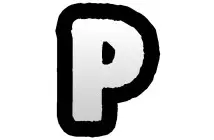
After sustained pressure from our readership, the Punknews editorial team have decided to take steps to curtail the creeping excesses evident in Punknews coverage over recent years. Chiefly, we will be addressing the longstanding issue of what constitutes 'punk' music, and will be carrying out a full, and transparent, review of the back catalogues of hundreds of bands. This process will be undertaken with a view to rebuilding Punknews according to the fundamental principles of our remit, being the sourcing, assessment, and posting of 'News' about 'Punk'.
This process is likely to take a while, as we're doing our best to be as thorough as possible. Once the process is completed, we are confident that the creeping excesses of the past years will be ruthlessly stamped out, and that we can build an austere, focused, and unified Punknews.
It is our fervent hope that our friends in other news outlets, labels, and the musicians themselves, will do their utmost to live up to our strict standards, and will take steps to strip their output of the dangerous outside influences that have been allowed to corrupt punk in recent decades.
The following are excerpts from the Editorial Team's draft advice to readers and interested parties. Please be advised that these declarations are still in the developmental stage, and should be treated as such. If an individual or organisation is declared 'Unpunk' by the Punknews Editorial Team in future, appealing to draft edicts will not be treated as admissible testimony during the appeal process, should an appeal be granted.
On the topic of The Clash:
'While their eponymous debut album is largely in keeping with punk dogma, special care and attention should be taken by listeners when dealing with the song "Police and Thieves", being a cover of an original work by reggae artist Junior Murvin. Indeed, all Clash output heavily influenced by the listening habits of bass player Paul Simonon should be dealt with with extreme caution. It is a well documented fact that Simonon, having grown up amongst London's West Indian community, was subjected to dangerous levels of reggae, dub, and ska during his upbringing, and the mellower sound of these genres influenced the impressionable young man to appreciate music which is frequently neither fast, loud, or snotty.The invasive influence of this 'broad-minded' approach to music can be heard most starkly on the 1979 album 'London Calling'. This album serves as an ideal example of how apparently innocent activities, like an interest in other popular music styles, can irrevocably damage the intrinsic 'punkness' of a band. Indeed, the presence of such musical styles as blues, rock and roll, and ska are liable to corrupt the tastes of the unsuspecting listener within only twenty minutes of listening. While assessment and understanding of the nature of this record is key for operatives working to sustain the sacred purity of the punk sound, the casual listener should leave well alone.'
On the topic of Ian Mackaye:
'Mackaye has long been a thorn in the side of true punks everywhere. Guilty of coining the term 'straightedge', thereby sparking a schism within punk, spawning the heretical, and defiantly clean living, offshoot. Chiefly confined to hardcore (itself guilty of minor perversions of the dogma, yet tolerated by the Editorial Team provided it stays within mutually agreed guidelines), straightedge has long stood as a seductive and dangerous alternative lifestyle choice for young punks who are too young to appreciate the undeniable virtues of drinking oneself into a stupor while recounting the names of every musician who has personally betrayed you by signing to a label that isn't run out of a spare bedroom.Be advised, Mackaye possesses a dangerous and Machiavellian intellect, and has long used his musical propaganda wing, Dischord Records, to undermine, and operate without, punk-accepted modes of capital generation, like the over-priced and wholly unnecessary album package, or the spurious novelty t-shirt.
Mackaye is also a longtime associate of Henry Rollins, whose membership of Black Flag heralded their gradual descent into "that slow metally stuff". An imposing figure, striped with lean muscle, Rollins is Mackaye's brutal enforcer, a living embodiment of his twin doctrines of positive life choices, and a healthy work ethic. This living heresy is a constant threat, regularly touring the country to indoctrinate theatres full of impressionable young minds with his renegade ideology.
On the topic of Riot Grrrl and Queercore:
'The frequently allied, often overlapping, fields of Riot Grrrl and Queercore are perhaps the most dangerous threats of all. Their extremist views, based on a fundamentalist belief in diversity and self determination, are at fundamental odds with the key punk tenet of Unity. Indeed, the deluded advocates of these dangerous cult-like groups, not content with joining The Punks to criticise the wider society, have had the gall to criticise The Punks themselves.These irrational zealots use words like 'discourse', and 'consciousness raising', in an effort to mask their true mission; to undermine the sacred Unity of The Punks by declaring that The Punks are not, in and of themselves, a perfect expression of punk ideals. This logical fallacy is at the heart of their thinking, the notion that The Punks are not already enlightened and perfected human beings, simply by virtue of being The Punks, marks them out as the most dangerous threat of all; fifth columnists who seek only the destruction of Unity. Indeed, they will stop at nothing until the last heterosexual white male is forced to look upon his heterosexual white male brother and cry out in righteous agony:
"Brother! Our sacred Unity is flawed! Our sacred Unity does not reflect upon itself, and is monolithic and unchanging! It must be abandoned."
We must not allow this to happen under any circumstances. Punk cannot reflect upon itself, for it is United! United in one mind! United in one voice! United in one defiant upraised fist! Unity! Unity! UNITY!'
Please await further decrees. Be seeing you.